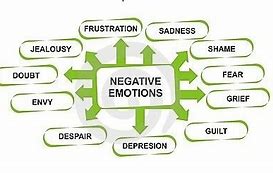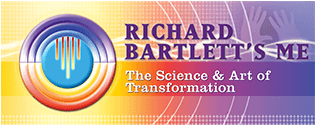
Addressing Our Emotions in Business
In the fast-paced world of business, emotional resilience is often considered a silent asset. Yet, there’s growing recognition, supported by extensive psychological research, that how we handle our emotions, especially the difficult ones, can profoundly impact not only our personal well-being but also our professional performance.
Studies on individuals coping with trauma or phobias consistently show that those who openly acknowledge and express their negative emotions experience significantly lower stress levels. Emotional transparency, far from being a weakness, is a strength that fosters clarity, connection, and ultimately, better decision-making.
Reflecting on my own journey, I recall how, as a younger man, I often internalised difficult emotions. This tendency made open communication challenging, particularly during times of personal hardship. I told myself that strength meant staying composed, even when everything felt like it was falling apart. Instead of reaching out for support, I withdrew, believing that vulnerability had no place in strength.
This pattern, especially prevalent among men, often follows us into the workplace. Many professionals, driven by expectations of strength and composure, hesitate to acknowledge the emotional weight they carry. Yet, unaddressed emotional strain doesn’t remain compartmentalised. It spills into our leadership, our decision-making, and our relationships with colleagues and clients.
The consequences of emotional suppression are well documented. Chronic stress, anxiety, and even physical illness have been linked to unprocessed emotional pain. Our mental and emotional states influence our health on a cellular level, underscoring the importance of emotional expression and self-awareness.
Energetically, like energy attracts like energy so when we carry unprocessed negativity within our energy field we attract others with similar negativity. In the case of anger for example, two angry people resonate with each other and arguments or worse can be the result.
In a business context, this becomes especially relevant. Anger, frustration, grief, when left unaddressed, can subtly shape workplace dynamics and business outcomes. A leader who is self-aware, emotionally balanced, and open to acknowledging their challenges sets a powerful example. Such leaders foster trust, encourage authentic communication, and cultivate a workplace culture where people feel seen, supported, and motivated.
Ultimately, your business reflects who you are. A calm, confident, emotionally intelligent leader inspires loyalty, productivity, and innovation. In contrast, suppressed pain often manifests as tension, conflict, or disengagement within teams as well as attracting the wrong sort of client.
It’s often our personal pain, bereavement, divorce, illness, family struggles, that weighs most heavily. When we carry this pain into the workplace unexamined, it can distort how we perceive and interact with others. Conversely, by taking the courageous step of addressing our emotions, we not only heal ourselves but also create a healthier, more compassionate, and more effective professional environment.

Practical Guidance for Addressing Suppressed Emotions:
If you recognise yourself in the patterns described above, someone who tends to suppress emotional pain, there are constructive steps you can take to begin shifting this dynamic:
- Start with reflection. Consider whether you may be unconsciously suppressing your emotions, and acknowledge the potential impact this might be having on your mental, emotional, and physical well-being.
- Choose to open up. Sharing your thoughts and feelings with a trusted friend, colleague, or professional can help bring relief and perspective. Emotional expression is often the first step toward greater resilience and clarity.
- Notice the mind-body connection. If a health concern persists, it may be worth exploring whether unspoken stress or emotional tension is contributing. Often, expressing difficult emotions can ease both mental and physical strain.
- Seek support if needed. If you find it uncomfortable to talk about these matters, I invite you to reach out for a confidential conversation. As an experienced counsellor and Master Energy Practitioner, I specialise in helping people work through their challenges in a respectful, gentle, and non-intrusive way.
With nearly 30 years of experience, I’ve developed and refined tools designed to help individuals release emotional burdens efficiently and with care. The process doesn’t have to be painful, in fact, many clients are surprised by how quickly they begin to feel lighter and more empowered.
In my own business journey, I initially believed that my primary motivators were service, purpose, joy, and impact. Over time, I realised that deeper drivers such as determination, growth, success, and even fearlessness were also at play. Understanding these inner motivations helped me to work more effectively and with greater satisfaction.
One important insight I’ve gained is that even our positive traits, like ambition or perseverance, can become detrimental when unbalanced. I’ve worked with many high-achieving professionals who believed that relentless effort would lead to success, only to find themselves burnt out, disconnected from their personal lives, and ultimately facing setbacks in their business.
The clients who have embraced emotional well-being and adopted healthier strategies often find that they achieve more with less stress. They work fewer hours, earn more, and enjoy deeper, more meaningful relationships at home and in their professional circles.
Self-care and emotional alignment are not luxuries, they are necessities for sustainable success. I encourage you to examine your current values, assess whether key elements might be missing, and take steps to restore balance.
By aligning with your true values and addressing any unresolved inner tension, you can move toward a more fulfilling, joyful, and successful path. If you’re ready to explore a new way forward, I welcome the opportunity to support you. You don’t have to face your challenges alone.





